An Executive Overview of Project Management
Course Length: ½ day or 1 full day
Course Description
The science and discipline of Project Management has emerged as a proven success metric in fast-paced, service-oriented and growing organizations. A structured and formal project management approach involves everyone in the organization. No longer is it a successful strategy to think of projects as merely technology or engineering in nature. Today’s projects are “business projects” which require the focus of the entire enterprise. This half-day course will take the participants through the current demands of organizations, how these demands are being met through the practice of project management, and outline considerations for a clear, robust and intentional path forward strategy for project management implementation.
Executives from all areas of the organization who wish to understand the interdependent nature of Project Management with other Organizational Best Practices would benefit by taking this course. It is a highly interactive session with several group discussion points.
Course Objectives
- Understand how project management is meeting organizational demands.
- Understand the risk inherent in today’s fast paced organizations.
- Discuss how to reduce organizational “Fire Fighting”.
- Understand the importance of a commitment to Up-Front Planning.
- Review current Project Management Benchmark Data.
- Understand the link between Strategic and Project Planning.
- Explore current Project Management Best Practices.
- Understand the critical success factors to proper methodology building.
- Understand the drivers of a formal Project Management Office.
- Understand the leadership requirements and considerations for successful organizational project management.
An Executive Overview of Project Risk Management
Course Length: ½ Day or 1 Full Day
Course Description
An Executive Overview of Project Risk Management is designed to heighten the executives’ awareness of risk management as one of the most critical components in project success. Students participating in this course will learn about the role of risk management, how it can best be managed within the organization, and how it integrates with the other elements of project management. Students will be engaged in a facilitated discussion exposing them to the support necessary to successfully manage risk within an organization.
Course Objectives
- Describe current project management requirements in the face of constrained projects, tight market windows, and the need for a more formal yet flexible and customer-centric approach.
- Describe Formal PM Life Cycles (Methodologies).
- Define the concept of Front End Loading (FEL) and its application to scope development accuracy: screening, concept and definitive.
- Discuss Planning-Based Estimates, Project Execution Planning (PEP), and Risk Management.
- Discuss risks inherent with technology based projects and how “best-in-class” organizations are handling them.
An Executive Briefing on Earned Value Management
Course Length: ½ Day
Course Description
This four hour seminar is an informative look at Earned Value Management. It includes an explanation of the concepts of Earned Value, the process for using Earned Value to draw conclusions, and hands on examples. Creation of an earned value management system (EVMS) ensures the project manager has performance data which relates time-phased budgets to specific tasks, indicates work progress, effectively integrates cost, schedule and technical accomplishment, provides valid, timely, and auditable information, supplies managers and executives with project status at a practical level of summarization, and accurately forecasts cost and schedule at completion
Who Should Attend
The course is intended for executives, program managers, project managers, team leaders, and anyone who need to setup, provide metrics for, base decisions on, or use Earned Value Management.
Course Objectives
Upon completion of this course, students will be able to:
- Use Earned value management is a tool that allows visibility into technical, cost, and schedule progress.
- Implement Earned Value Management Reporting Systems
- Read, understand, and interpret Earned Value Reports, an essential function of project management, and a required reporting tool on many government contracts.
Course Outline
- The Triple Constraint
- Earned Value Terminology
- Earned Value Calculations
- Interpreting and Reporting Using Earned Value
- Milestone Charts and Tracking
- Milestone Controls
- Project Cost Management
- Estimate
- Baseline Setup
- Project Control
- Gathering Status Information
- Variance Analysis
Coaching and Mentoring Project Managers
Course Length: 2 Days
Course Description
Coaching and Mentoring Project Managers provides the theory needed to understand that everyone requires feedback and assistance. Project Management presents yet another source of challenge – motivating people who may not necessarily report to you. Students will learn how to coach, especially how to construct effective messages, give and receive feedback, and that actively listening, is an art in as much as a science. Knowing how to coach is a critical competency, especially for Project Leaders, and one that takes some time to acquire and refine. This introduction to coaching includes information regarding the importance of coaching, tips for coaches, a look at the communication model, a discussion of listening skills and an opportunity for students to practice coaching.
Course Objectives
- Define coaching.
- List benefits and discuss how/when coaching should be used.
- Define an effective coaching activity.
- List elements of coaching.
- Explain why effective communication is critical in the process.
- List elements of the communication model for coaching.
- Define and utilize a systematic method for effective, results-based coaching.
Leadership Skills for the Project Manager
Course Length: 2 Days
Course Description
Few activities require as many leadership skills as Project Management. In fact, effective Project Managers often have skills rivaling those of top executives in an organization. Project Managers must take on a number of traditional and non traditional roles in guiding their projects toward completion and serve as the key communicator, negotiator, expeditor, motivator and more. This course offers a look at the skill sets necessary to meet the daily leadership challenges a project manager faces, both from an organizational and competency based perspective. It will leave the students with valuable insight into managing, and improving, their personal leadership profiles.
Course Objectives
- Describe what skill sets effective project managers possess.
- Utilize the “six lookings” theory to identify required traits of successful project leaders.
- Identify four key leadership styles and their implications on the project team.
- Lead, not only as a manager, but as a team member as well.
- Use the right technique at the most appropriate time in any situation can increase leadership credibility and effectiveness.
- Identify strategies for managing cultural challenges.
Managing Multiple Projects with Optimum Efficiency
Course Length: 2 Days
Course Description
Managing multiple projects in today’s business environment is a challenge. To expertly manage multiple projects, you need to recognize priorities and delegate wisely. Communication skills such as negotiating and influencing become even more critical in the competition for project resources. To do that successfully, you need an extensive understanding of how risk, human resources, schedules and costs must be integrated. In this course, you’ll learn techniques for establishing priorities, identifying risks generated by the multi-project environment, sharing resources and maximizing your leadership skills.
This course is highly interactive and how-to oriented. Discussion of concepts and principles is followed by exercises. The emphasis is on the practical application and adaptation of selected tools and processes to projects.
Program and project managers, lead analysts and department managers responsible for multiple project management would benefit by taking this course.
Course Objectives
- Understand the structure of multiple projects.
- Know the relationships between multiple projects.
- How to structure the management of multiple projects.
- How to adapt the project life cycle to manage multiple projects.
- Use a variety of systems development approaches.
- How to adapt the project life cycle for maximum benefit.
- How to plan multiple projects.
- How to use the project life cycle to monitor multiple projects.
A Manager’s Guide to Project Management
Course Length: 4 days
Course Description
This intensive four day seminar is designed to provide managers with the skills they need to understand project management: how it works, when it doesn’t, support required, possibilities and challenges. Participants will discover the basic components of good project management such as planning, life cycle, project scope, risk, cost, scheduling, monitoring, control, human resources and more. They will learn what it takes to be a good project manager and how to support one. The intent of the seminar is to offer students a framework of project management knowledge to build upon using interactive lecture, real life examples, case studies, dynamic exercises and reflective self assessments.
Course Objectives
- An understanding of project management, what works and what doesn’t
- The insight to design and manage a project office
- Skills to align project goals with goals of the organization
- An understanding of the skills and competencies required for effective project managers
- The ability to manage project constraints, time, cost and resources
- The insight to assess project performance and design contingency plans
- Skills to effectively manage and schedule resources
- An understanding of project risk assessment strategies
- The skills to evaluate the financial effects of risk on a project
Excellence in Project Management Leadership
Course Length: 2 Days
Course Description
This course takes a deep and insightful look at the topic of leadership, the “art” side of program/project management, from two distinct yet integrated perspectives: leadership as applied to program/project oversight responsibilities and the ongoing personal development of a leader.
The course will emphasize the critical role that the “human relation” side of project management plays in the planning, execution, and control of any size project effort. Utilizing insights and critical distinctions based on the facilitator’s vast and varied project management and executive leadership experience, participants will be brought face to face with questions about their own leadership effectiveness. This course requires “real” and substantive participation that will result in the participants being lead through a detailed look at the critical aspects of effective leadership, personal development, coaching-mentoring, managing in a chaotic project environment, pro-active and effective communication, and the distinctions of effective personal development as a leader.
Course Objectives
- Learn the critical success factors to leadership in a program-project oversight environment
- Gain insight into the power and influence positions in effective project leadership
- Examine the critical success factors and best-practice behaviors in achieving effective and lasting results with coaching and mentoring
- Understand the many “faces” of leadership and gain insight into the best-practices and mind-sets inherent in successful leadership models
- Work with the current models in emotional intelligence and its application to intuitive leadership principles
- Assess one’s own effectiveness as a leader and create a personal development plan for future insight, efficiency and success.

